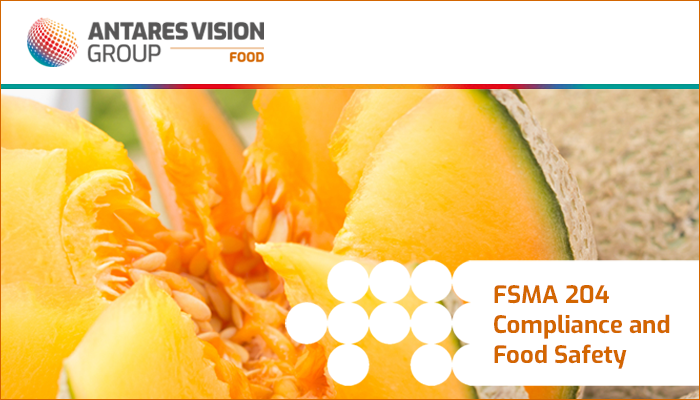The Food Safety Modernization Act (FSMA) is a sweeping set of regulations designed to revolutionize how we approach food safety in the United States. The Final Rule on Requirements for Additional Traceability Records for Certain Foods — also known as the “Food Traceability Final Rule” or “Final Rule”) implements FSMA Section 204. FSMA 204 establishes additional traceability recordkeeping requirements for companies that manufacture, process, pack, or hold foods included on the Food Traceability List (FTL).
For the food industry, understanding and complying with FSMA 204 is not just a legal requirement: it’s a commitment to public health and safety. It also creates many value-add opportunities through leveraging supply chain traceability.
Let’s dive into the FSMA 204 rule and what it means for your business.
Understanding FSMA 204
FSMA’s overarching goal is to prevent foodborne illnesses; it has seven rules to govern food production and distribution. Section 204 focuses on enhancing the traceability of FTL food, ensuring that businesses can quickly identify and address potential safety issues. The rule emphasizes the need for detailed recordkeeping. It’s like a meticulous logbook of your food product’s journey from farm to table.
Specifically, FSMA 204 requires supply chain actors to maintain records of critical tracking events (CTEs) and associated key data elements (KDEs). Entities that manufacture, process, pack, or hold foods on the FTL (e.g., harvesters, packers, processors, and distributors) must maintain and share these electronic records. So it’s not a stretch to say that the Food Traceability Final Rule will affect almost everyone in the U.S. food supply chain.
Compliance Requirements
If you’re wondering whether FSMA 204 applies to you, consider the scope of your business. The rule primarily targets businesses that manufacture, process, pack, or hold foods listed on the Food Traceability List (FTL). Some items on the FTL include:
-
- Nut butters
- Deli salads
- Leafy greens
- Melons
- Shell eggs
- Tropical tree fruits
- Crustaceans
- Cucumbers
- Finfish
- Other fresh produce
To comply, you need to register with the FDA, providing detailed information about your business and the specific food products you handle. While there are exemptions, most members of the food supply chain will have to comply with FSMA 204, which also requires using traceability lot codes, developing a traceability plan, and sharing records with the FDA when requested.
Compliance Measures
Compliance with FSMA Section 204 might sound daunting, but it’s achievable with the right approach. Start by thoroughly understanding the Final Rule and its requirements. Develop a system for meticulous traceability recordkeeping. Training your staff on food safety practices is also crucial.
The goal is to make food safety part of your company’s DNA; you can’t treat the FDA Food Safety Modernization Act as an afterthought or a box you have to check.
Navigating the Countdown to Compliance
Let’s take a closer look at the FSMA 204 timeline. Traditionally, the FDA has rolled out major regulations using a phased approach. For FSMA 204, however, the Agency has set a single firm compliance date: January 20, 2026.
Although that’s a little more than two years away, the time to start preparing is now. Don’t wait. Start your compliance process early, and use the time to refine and perfect your systems. That way, if you encounter any unexpected hurdles, you’ll have time to sort them out.
The Importance of Traceability
Traceability is at the heart of FSMA 204. By maintaining and sharing CTEs, KDEs, and detailed records of each food item’s journey, businesses can know where every product came from, where it is right now, where it’s going next, and its final destination. With this rich traceability data, they can swiftly address safety concerns, recall affected products, and provide critical information during investigations. Improving traceability can also mitigate brand damage due to recalls and help maintain consumer trust.
Common Challenges and Solutions
As you work to implement FSMA 204 into your business model, you could encounter one of these challenges:
-
- Data challenges: Existing data-sharing strategies need to be supplemented with traceability data.
- Trading partners challenges: If your partners don’t send required traceability data, it will affect your ability to maintain and send CTEs and KDEs across your supply chain.
- Process challenges: Your system must be able to send and receive traceability data quickly and accurately. It must also be able to spot (and fix) errors and communicate effectively with your partners.
- Technology challenges: Legacy supply chain systems may not be equipped to capture and organize traceability data.
Overcoming these hurdles requires a holistic approach. You must reevaluate your processes to ensure they promote compliance and, critically, collaborate with your partners to ensure you’ll be able to share all the required FSMA 204 data. Most important, you should determine if you need to replace or augment legacy tech with new solutions designed to modernize and simplify traceability.
Benefits of FSMA 204 Compliance
FSMA 204 compliance provides many, many benefits to your business, your trading partners, and the public. When you comply with FSMA 204, you help maximize traceability, food safety, and supply chain visibility. You also avoid penalties for non-compliance.
Implementing traceability technologies will also make your supply chain more efficient. You’ll gather robust item-level data insights about the flow of goods, which will help you to identify bottlenecks and “blind spots,” reduce spoilage, and even fight diversion, theft, and counterfeits. The more you know about your supply chain, the easier it will be to optimize it.
Complying with FSMA 204 requirements is also an opportunity to leverage rich traceability data to enhance your brand reputation, engage with consumers and build trust, and establish yourself as a leader in food safety. These benefits translate into customer loyalty and business growth.
Final Thoughts About FSMA 204 Compliance
The deadline to comply with FSMA traceability requirements is January 20, 2026. (That’s a Tuesday, if you’re wondering.) The FDA is giving the food industry the extra time because it wants all regulated businesses to come into compliance by the same date — and because it acknowledges that trading partners have to get their systems in place.
The worldwide food industry should monitor events in the United States as FSMA traceability requirements evolve. It’s not just about compliance and being able to sell products in America; it’s about being able to anticipate regulatory trends, keeping your supply chain moving at peak performance, and leading in the industry through adaptation and innovation. It’s also about leveraging the FSMA regulations to create business opportunities.
This is where Antares Vision Group can help. We offer a full-stack solution for the food industry. A “soup to nuts” solution, if you will. We can answer your questions, show you in concrete detail how we create end-to-end traceability in supply chains, and discuss how to use traceability to safeguard your brand and protect your bottom line. Contact us today to talk with us and schedule a demo.
And read this if you’re interested in learning about how rfxcel technology helped a major berry producer control the safety and quality of more than 1.5 billion products.





